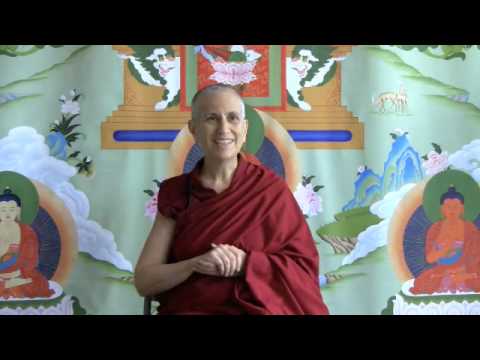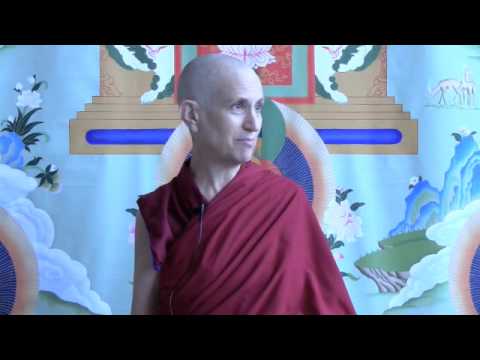Praise and criticism
Part of a series of Bodhisattva's Breakfast Corner talks given during the Green Tara Winter Retreat from December 2009 to March 2010.
- How to work with our minds when facing criticism
- We need to examine what our priorities are in life
Green Tara Retreat 026: Praise and criticism (download)
Someone wrote in and wanted a little bit of clarification about yesterday, about the situation with your boss and about working with other people who may criticize you.
As I was saying yesterday, ask yourself what’s really important in your life. If your Dharma priorities are the most important thing, then you say, “How does somebody’s praise or somebody’s criticism help me attain my Dharma goal, or interfere with my Dharma goal?” You’ll find that somebody else’s praise or criticism (unless it’s your Dharma teacher or the Buddha or somebody you really respect that’s guiding you) is not going to affect what is most important for you in your life. When you realize that, then your mind calms down.
When your mind calms down, you can look at the situation (your boss criticized you, or somebody else criticized you), but your mind’s calm. You can look at the situation and say, “Is there some valid criticism here?” Maybe I made a mistake in which I need to apologize or make amends, or I need to do what I said I was going to do. Maybe we look at it calmly and we see now that the other person made a mistake; they had wrong information or there was some mix-up somewhere. Then again, no need to get upset. Just go and talk to the person and work it out. What we’re doing with the Dharma is, we’re working on how to keep our own mind calm. With a calm mind we look at the situation and see what the best thing to do is.
I wanted to make that very clear. When we’re saying, “The boss’s praise, the boss’s criticism doesn’t affect my long-term goals.” That doesn’t mean that you just throw the criticism out the window and say, “Since it doesn’t affect my long-term goals, I don’t even need to respond to it.” No. He’s a sentient being or she’s a sentient being. They’re suffering and something needs to be done to work the situation out. But you do that with a calm mind.
That’s the point that we’re getting at. All these are methods that help us work with our mind. They’re not necessarily telling us what to do in the situation. We have to figure out what to do by using our own common sense.
Venerable Thubten Chodron
Venerable Chodron emphasizes the practical application of Buddha’s teachings in our daily lives and is especially skilled at explaining them in ways easily understood and practiced by Westerners. She is well known for her warm, humorous, and lucid teachings. She was ordained as a Buddhist nun in 1977 by Kyabje Ling Rinpoche in Dharamsala, India, and in 1986 she received bhikshuni (full) ordination in Taiwan. Read her full bio.


